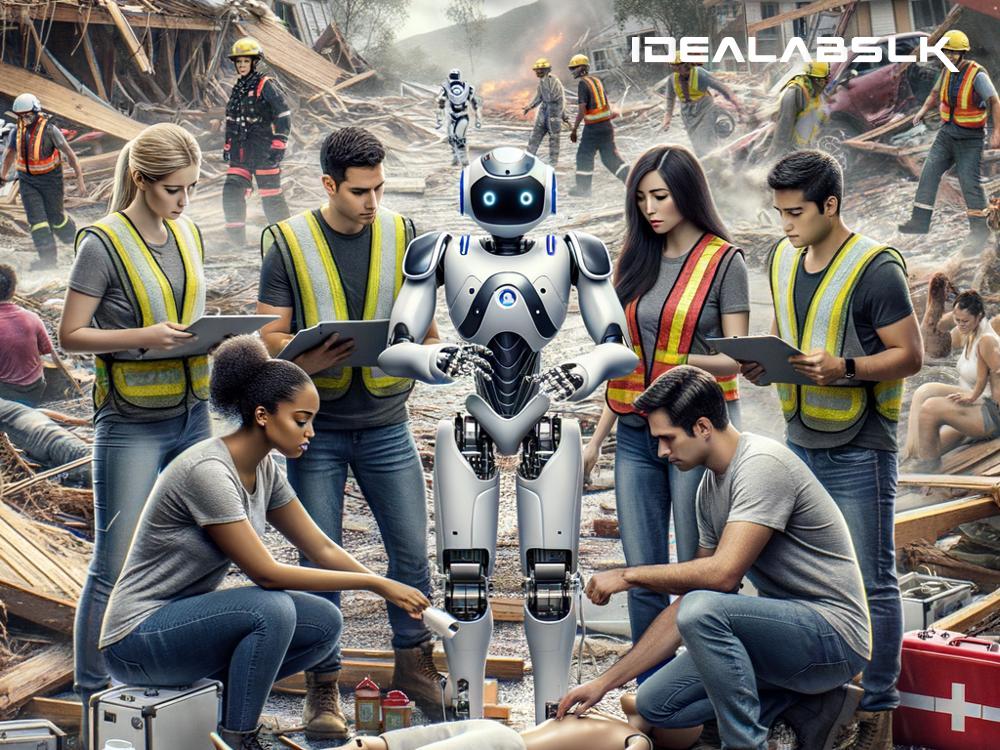The Role of AI in the Future of Crisis Response
In recent years, Artificial Intelligence (AI) has evolved from a futuristic idea into a crucial tool that helps us in many facets of life. From making our homes smarter to powering self-driving cars, AI's capabilities seem limitless. One area where AI is set to make a significant impact is in crisis response. As we look forward, it's exciting (and a bit sci-fi) to think about how AI might shape our approach to handling emergencies and crises in the future.
What is AI?
First, let's quickly demystify AI. Artificial Intelligence, at its core, is about machines and computer systems that can perform tasks which typically require human intelligence. This includes things like understanding natural language, recognizing patterns, solving problems, and even making decisions.
AI in Today's Crisis Response
Currently, AI is already helping in various crisis scenarios, albeit in its infancy stages. For example, during natural disasters such as hurricanes or wildfires, AI algorithms can analyze vast amounts of data from satellite images to predict the path of the disaster and identify the most affected areas. This information is crucial for emergency responders to make timely decisions and save lives.
Moreover, AI chatbots and virtual assistants have been deployed to provide instant information and support to people affected by crises, efficiently managing resources where human responders might be overwhelmed.
The Future of AI in Crisis Response
Looking forward, the potential of AI in crisis response is vast and thrilling. Here are a few ways AI could further revolutionize how we manage emergencies:
Predictive Analysis
Imagine if, instead of merely reacting to crises, we could anticipate them. AI has the potential to make this a reality through advanced predictive analysis. By processing huge amounts of data from various sources—such as weather patterns, social media, and IoT (Internet of Things) devices—AI can help us foresee crises before they escalate. This could range from predicting natural disasters with greater accuracy to identifying potential outbreaks of diseases, allowing for more effective preventive measures.
Enhanced Communication
During a crisis, effective communication can be the difference between chaos and order. Future AI technologies could offer real-time translation services, breaking down language barriers and ensuring that crucial information reaches everyone, regardless of the language they speak. Additionally, AI-powered social media monitoring could help identify misinformation and provide accurate, reliable updates during emergencies.
Autonomous Response
One of the most science fiction-like possibilities of AI in crisis response is the use of autonomous drones and robots. These AI-driven machines could be sent into disaster zones where it might be too dangerous for human responders. They could search for survivors, deliver supplies, or even carry out minor repairs and constructions to make areas safe more quickly. Their ability to work tirelessly could be invaluable in the immediate aftermath of a crisis.
Smart Evacuation Plans
AI could revolutionize evacuation plans by making them dynamic and adaptive to the situation. Based on real-time data analysis, AI systems could determine the safest evacuation routes, taking into account ongoing changes like the spread of a fire or the formation of traffic jams. This would help avoid bottlenecks and ensure that people are evacuated safely and efficiently.
Challenges and Considerations
While the potential of AI in crisis response is enormous, there are also significant challenges to address. Privacy concerns, data security, and ethical considerations around decision-making by machines are all issues that need careful thought. Moreover, there's the risk of over-reliance on technology, which could be problematic if systems fail or are compromised during critical moments.
Conclusion
The role of AI in the future of crisis response is poised to be transformative. As technology continues to advance, AI could enable us to anticipate, manage, and recover from crises more effectively than ever before. However, it's crucial to navigate the development of these technologies thoughtfully, ensuring they serve humanity's best interests while minimizing potential risks.
In a world that seems increasingly susceptible to various crises, from natural disasters to pandemics, embracing the potential of AI could be a significant step forward in safeguarding our communities and ensuring a resilient future.

